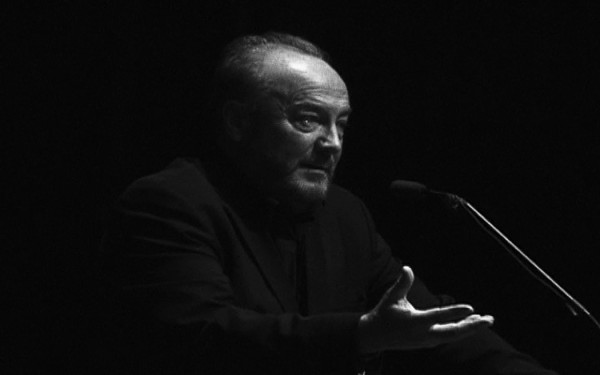Letter: Institutional Support for the Occupation is a Moral Disaster for the Jewish Community
Nikki Haley Does Not Speak for All Members of the Jewish Community
On April 10, the Jewish Community Council of Montreal, in collaboration with Federation CJA, will honour former United States Ambassador to the United Nations Nikki Haley with their King David Award for her defense of human rights and solidarity with Israel and the Jewish people.
Yet historically, Haley has displayed questionable conduct on human rights affairs.
Honouring an antagonist of social welfare is inconsistent with Jewish values of promoting community wellbeing, and falsely suggests that Haley’s approach to solidarity with Israel represents the sole and unified opinion of the Jewish community of Montreal.
As a member of this community, seeing major Jewish institutions put forth this message fills me with shame. If CJA and the JCCM associate themselves with perpetrators of the occupation of Palestinian territories and uphold human rights violations in the name of our people, then I have to wonder whether they truly have the Jewish community’s interests at heart.
Jewish institutional support for the State of Israel stems from a valid place: Jewish people have a long history of persecution, facing xenophobia and anti-Semitism time and time again.
The fear of alienation is still alive, especially in light of the Pittsburgh synagogue shooting last October.
Many believe the Jewish State is the beacon of our prosperity and provides us a haven of safety and acceptance.
Israel serves as the home to many millions of Jewish immigrants and refugees escaping anti-Semitism in their own communities throughout the world, as is the case for many of my dear friends and family members.
However, the way the Israeli government and military currently operate—through disproportionately violent reactions to Palestinian activism, limiting Palestinians’ mobility and democratic rights, and fostering hatred—is not the cure for anti-Semitism nor the path to Jewish prosperity.
In fact, this conduct imposes a moral hazard to the Jewish community and forces me to politicize my religious beliefs through activism, for I cannot endlessly justify actions I feel are inconsistent with Jewish humanitarian values.
To ensure the long-term success of our people as well as freedom and dignity for all Israelis and Palestinians, and for ourselves, we must face criticism, listen to the pleas of affliction, and respond accordingly.
Some of my friends and family reading this may interpret my statement as a betrayal of the Jewish community, or even dismiss me as anti-Semitic.
The fact is that Judaism is an integral part of my life, identity and self-conduct. I grew up in a Jewish household, attended Jewish day school, and currently work at a synagogue.
Opposing the Israeli occupation of the Palestinian territories does not negate the validity of how the State serves the Jewish people.
The issues I discuss are not exclusive to certain religious values or political ideologies, nor must one have a stance on Zionism, boycott, divestment, and sanctions against Israel, or address the question of statehood to involve themselves in the discussion.
I am demanding simply that my community recognize the occupation is an injustice.
Many of my fellow community members who do not share my opinion and shy away from this discourse recognize that there is a moral conflict.No problem can be solved by voluntary ignorance or by immediately blacklisting criticism without fully comprehending the argument.
We may be far from a solution and should not expect to find one immediately, but the first step toward progress, justice and peace is to understand why people are angry and engage in the public discourse.
One of the founding pillars of Federation CJA is the Jewish value of Tikkun Olam (“repair of the world”), which is the Jewish obligation to behave constructively and act beneficially, while recognizing that we bear responsibility for the welfare of our society and ourselves.
If Jewish institutions truly wish to uphold the principle of Tikkun Olam, they must continue to emphasize the needs of our local community, and focus on what unites, rather than what divides us.
Leora Schertzer




__600_375_90_s_c1.jpg)
__600_375_90_s_c1.jpg)

__600_375_90_s_c1.jpg)